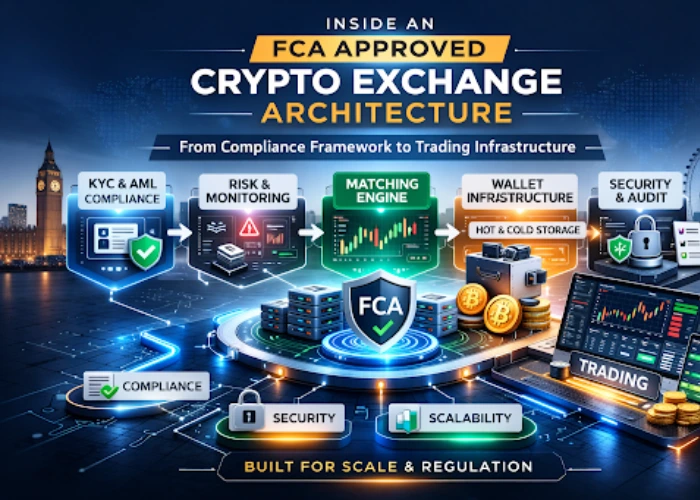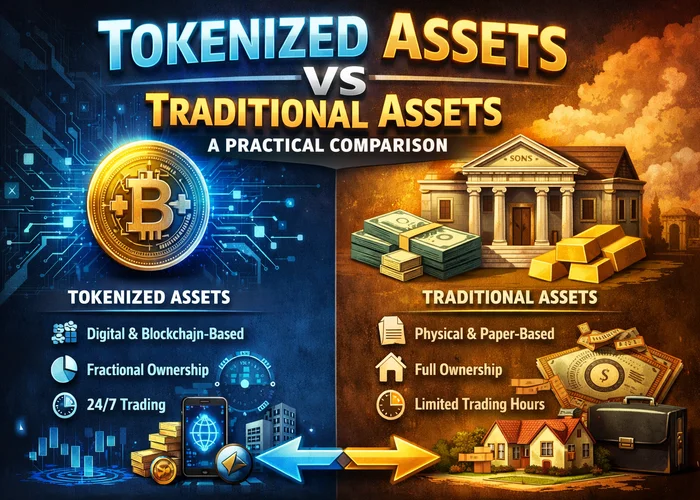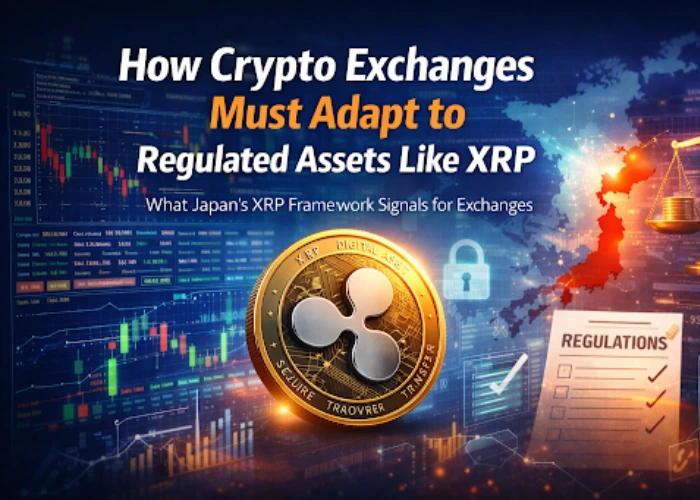In the ever-evolving world of digital assets, Bitcoin exchange platforms serve as the backbone of cryptocurrency trading. These platforms enable users to trade Bitcoin and other cryptocurrencies seamlessly, making them an integral part of the global financial ecosystem. For businesses and entrepreneurs looking to capitalize on this booming industry, Bitcoin Exchange Platform Development is the key to unlocking immense opportunities.
Whether you’re aiming to Create a Cryptocurrency Coin, Build a Cryptocurrency Coin, or Start a Cryptocurrency Coin, having a reliable and secure exchange platform is essential. Partnering with a reputable Crypto Coin Development Company can ensure you have the technical expertise needed to navigate this complex domain. Additionally, the demand for custom token creation has surged, encouraging businesses to Create Your Own Token for niche markets or innovative projects.
With the rise of crypto adoption, the industry has seen significant advancements. From Top 8 Centralized Crypto Exchange Development Trends to decentralized systems, the landscape offers a wealth of opportunities for growth. Security remains paramount, emphasizing The Importance of Security in Cryptocurrency Exchanges to safeguard user assets and maintain trust.
For businesses looking to expand their offerings, the ability to Create Instant Cryptocurrency Exchange or Create a Crypto Wallet has become a top priority. These tools not only enhance user experience but also establish a competitive edge in the market. Companies can also Hire Blockchain Developers to build customized solutions tailored to specific needs.
In regions like the UK, the competition is fierce among the Best Cryptocurrency Exchange Companies UK, as they strive to deliver cutting-edge services. Entrepreneurs exploring decentralized models can benefit from understanding How to Create a Decentralized Cryptocurrency Exchange, while those seeking ready-made solutions can opt for the Best White Label Crypto Wallet Development services to get started quickly.
Bitcoin exchange platforms are more than just trading hubs; they represent a gateway to the future of finance. Whether you’re an innovator or an investor, staying ahead in this dynamic market begins with a robust exchange platform.

Types of Bitcoin Exchange Platforms
Crypto Exchanges are the most common way to acquire and sell cryptocurrencies and other digital assets. Private cryptocurrency exchanges allow traders to trade cryptocurrencies for digital, fiat, and NFTs.
Centralized Crypto Exchanges (“CEX”)
Centralised bitcoin exchanges accept commissions and transaction fees from buyers and sellers. Think of a CEX as a stock exchange for digital assets.
Popular crypto exchanges include Binance, Coinbase, Kraken, and KuCoin. These exchanges allow cryptocurrency investors to buy and sell digital assets at the spot price or place limit orders that are executed when the asset reaches their price objective, like stock trading websites or applications.
CEXs use order books to list and sort buy and sell orders by price. Exchange matching engines link buyers and sellers based on the best executable price for the chosen lot size. Whether it’s fiat currency or cryptocurrency, a digital asset’s price depends on supply and demand.
CEXs choose which digital assets to trade, which gives some confidence that dishonest ones may be eliminated.
Decentralized Cryptocurrency Exchanges.
A decentralized exchange lets you make peer-to-peer transactions from your digital wallet without an intermediary. DEXes include Uniswap, PancakeSwap, dYdX, and Kyber.
Blockchain-based smart contracts power these decentralized exchanges. Smart contracts offer better privacy and lower slippage or transaction costs than centralized bitcoin exchanges.
Even if smart contracts are rules-based, DEXs are for educated investors because there is no third party.
Core Features of a Bitcoin Exchange Platform
The success of any cryptocurrency exchange depends on its ability to provide users with a secure, efficient, and user-friendly platform. When embarking on Bitcoin Exchange Platform Development, incorporating essential features is critical to ensuring a seamless experience for traders and investors. Here are the core features that every Bitcoin exchange platform must include:
- User-Friendly Interface
An intuitive and clean interface ensures that users can easily navigate the platform, execute trades, and access their wallets without hassle. A well-designed user experience attracts beginners and experienced traders alike.
- Secure Authentication and KYC
Robust security measures such as two-factor authentication (2FA), biometric verification, and Know Your Customer (KYC) protocols are vital to safeguard user accounts and comply with regulations. Bitcoin Exchange Platform Development must prioritize these features to enhance trust and safety.
- Efficient Order Matching Engine
The order matching engine is the backbone of any exchange. It processes buy and sell orders in real time, ensuring quick and accurate trade execution. High performance and low latency are crucial for success.
- Multi-Currency Support
A competitive platform should support a wide range of cryptocurrencies in addition to Bitcoin, enabling users to diversify their portfolios. This includes popular altcoins and custom tokens created by businesses.
- Liquidity Management
Ensuring high liquidity is essential to maintain market stability and attract users. Liquidity solutions such as integration with other exchanges or liquidity providers can be implemented during Bitcoin Exchange Platform Development.

Cryptocurrency Exchange Development Process
Building a robust cryptocurrency exchange platform requires a methodical and innovative approach. The process involves several key stages, each designed to ensure efficiency, security, and scalability. Here’s a detailed breakdown:
1. Requirement Analysis and Technical Consultancy
The initial step is to deeply understand the client’s objectives and requirements. This stage includes:
Gathering detailed project requirements and conceptualizing ideas.
Identifying and addressing specific business objectives.
Conducting a comprehensive market and technical analysis.
Developing a solid solution architecture.
Mapping smart contract functionalities to align with business needs.
2. Graphic and Technical Design
A user-centric design is critical for creating an engaging platform. This phase focuses on:
Planning core functionalities.
Designing an intuitive and user-friendly interface.
Outlining further development phases for seamless execution.
Preparing for cross-contact interactions and integrations.
Providing cloud storage consultancy to ensure data security.
3. Smart Contract Integration
Smart contracts automate processes and enhance transparency. This step involves:
Defining and analyzing smart contract specifications.
Executing logic and functionality effectively.
Ensuring smooth smart contract calling.
Optimizing the platform’s performance for better scalability.
4. UI/UX Design
An attractive and responsive design boosts user engagement. Key tasks include:
Developing a responsive UI optimized for both desktop and mobile devices.
Implementing custom transaction designs and API gateway development.
Regularly updating the UI for a consistent and seamless experience.
5. Extensive QA Testing
Thorough testing ensures a secure and stable platform. The testing phase consists of:
Performing both automated and manual tests.
Checking integrations and overall platform functionalities.
Evaluating the user interface for bugs and inconsistencies.
Generating comprehensive software audit reports.
6. Product Deployment
Deploying the platform successfully is crucial for market entry. This involves:
Conducting test net deployment and validation.
Ensuring smooth deployment on the main net.
Implementing essential market analysis tools.
Integrating reporting systems for performance tracking.
7. Upgrading and Support
Post-launch support ensures the platform stays relevant and functional. Activities include:
Providing feedback-based updates to improve the platform.
Integrating additional services to enhance usability.
Configuring and connecting new exchanges for broader market reach.

Blockchain Wallet Integration for Bitcoin Exchanges
Blockchain wallet integration is a critical component of any Bitcoin exchange platform development, ensuring seamless and secure transactions for users. A robust wallet system not only supports the core functionalities of storing, sending, and receiving cryptocurrencies but also adds a layer of trust and security for users engaging in digital asset trading. Here’s an in-depth look at blockchain wallet integration for Bitcoin exchanges.
Core Benefits of Blockchain Wallet Integration
Enhanced User Security
With features like multi-signature support, encrypted private keys, and secure storage, blockchain wallets ensure that users’ funds remain protected. The importance of security in cryptocurrency exchanges cannot be overstated, and wallets play a pivotal role in safeguarding transactions.
Seamless Transactions
Blockchain wallets enable users to perform instant deposits and withdrawals, ensuring a smooth trading experience. This capability aligns with trends in top centralized crypto exchange development and supports market growth.
Flexibility and Multi-Currency Support
Advanced blockchain wallets are designed to support multiple cryptocurrencies, making them versatile tools for users. For businesses looking to create instant cryptocurrency exchanges, this flexibility is crucial to attracting a wider audience.
Decentralized Integration Options
Wallets also support decentralized platforms. If you’re exploring how to create a decentralized cryptocurrency exchange, blockchain wallets provide the backbone for peer-to-peer transactions without intermediaries.
Key Features of a Blockchain Wallet for Bitcoin Exchange Platforms
- Wallets must encrypt keys for added protection, ensuring that only authorized users can access their assets.
- Adding another layer of security, such as 2FA, enhances user confidence in the platform.
- Providing users with a detailed transaction log ensures transparency and trust.
- Wallets should work seamlessly across web, mobile, and desktop applications, ensuring a consistent user experience.
- For businesses that want to create your own token, integrating support for custom tokens is essential. This allows platforms to expand their offerings and attract diverse audiences.
Steps to Integrate Blockchain Wallets in Bitcoin Exchange Platform Development
Choose the Right Wallet Type
Decide whether to integrate hot wallets (connected to the internet) for accessibility or cold wallets (offline storage) for added security.
Hire Blockchain Developers
Collaboration with experienced developers ensures the wallet is implemented correctly. Work with a team or crypto coin development company that specializes in best cryptocurrency exchange companies in the UK for industry-leading solutions.
Implement Multi-Signature Features
Multi-signature functionality enhances wallet security, reducing the risk of unauthorized access.
Follow White Label Development Trends
Opting for the best white label crypto wallet development solutions allows for faster deployment while leveraging tested functionalities.
Testing and QA
Rigorous testing ensures that wallets are secure, user-friendly, and compatible with the overall platform.
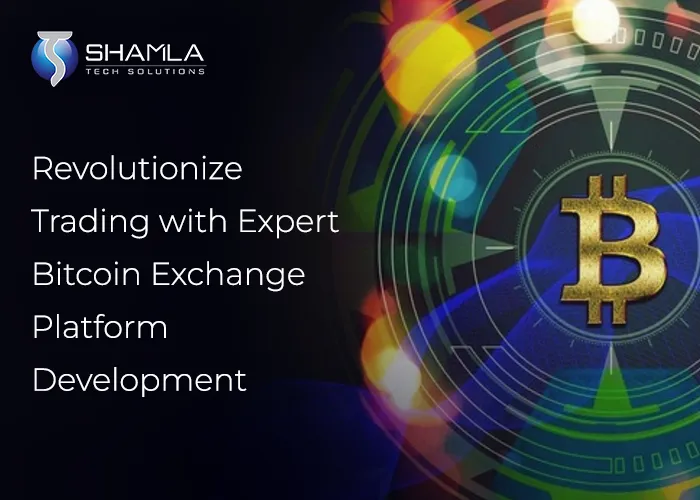
Secure Crypto Trading Platforms: Must-Have Security Measures
You must secure your cryptocurrency investments. Selecting a trustworthy bitcoin exchange is crucial. Secure exchanges with solid insurance coverage and a history of preventing cyberattacks. Check reviews and security incidents for the exchange’s reputation. Exchanges that offer cold storage for most, if not all, funds can also provide piece of mind.
Two-factor authentication (2FA) is an excellent idea because it needs a second form of identification verification, usually a mobile app or SMS code, making account access harder. Secure, frequently-changed passwords give another degree of security. Use a secure password manager if you use birthdays or common words.
Software must also be updated to combat security risks. That implies your wallets, trading platforms, and other programs should be updated. Developer updates repair security holes, protecting your digital assets from new attacks.
Fiat-to-Crypto Exchange Functionality
Fiat-to-crypto exchange functionality is a critical feature in Bitcoin exchange platform development, enabling users to convert traditional fiat currencies like USD, EUR, or GBP into cryptocurrencies such as Bitcoin or Ethereum. This capability simplifies the onboarding process for beginners, bridging the gap between traditional financial systems and the world of digital assets.
A fiat-to-crypto exchange enhances accessibility by providing users with multiple payment options, such as credit/debit cards, wire transfers, and e-wallets. Real-time conversion rates and a user-friendly interface ensure a seamless trading experience. Moreover, integrating secure fiat gateways and adhering to KYC (Know Your Customer) and AML (Anti-Money Laundering) regulations instills trust and ensures compliance with global financial laws.
Incorporating fiat-to-crypto functionality in Bitcoin exchange platform development supports market growth by attracting a broader audience and increasing liquidity. Platforms benefit from higher trading volumes, making them more robust and competitive in the dynamic crypto industry.
To integrate this feature, platforms must collaborate with reliable payment providers, implement strong security protocols, and hire experienced blockchain developers. A user-centric approach is crucial, ensuring that the interface is intuitive and accessible.
Fiat-to-crypto exchange functionality is a cornerstone of modern crypto platforms, lowering the barriers for users to enter the cryptocurrency market. By focusing on security, compliance, and usability, businesses can enhance user satisfaction and solidify their position in the evolving digital finance landscape.
Regulatory Compliance for Bitcoin Exchange Development
Regulatory compliance is a cornerstone of successful Bitcoin exchange platform development, ensuring that platforms operate within the legal framework of their target regions. Compliance safeguards the platform’s credibility, enhances user trust, and protects it from potential legal challenges.
One of the key aspects of compliance involves adhering to KYC (Know Your Customer) and AML (Anti-Money Laundering) regulations. These measures help verify user identities, prevent fraud, and mitigate risks related to financial crimes. Integrating robust KYC and AML processes is essential for any Bitcoin exchange platform development project, ensuring smooth operations and alignment with global standards.
Additionally, platforms must obtain the necessary licenses and approvals based on their operational jurisdictions. Licensing requirements may vary, encompassing areas like data privacy, financial reporting, and taxation. Adhering to these requirements demonstrates the platform’s legitimacy and commitment to regulatory standards.
Another vital aspect is ensuring GDPR compliance for handling user data securely, particularly for platforms targeting users in the European Union. Protecting customer data through encryption and secure storage systems not only complies with legal mandates but also fosters user confidence.
Working with legal experts and compliance consultants is crucial in navigating the complex landscape of cryptocurrency regulations. Moreover, platforms should maintain regular audits and updates to remain compliant as laws evolve.
Incorporating regulatory compliance into Bitcoin exchange platform development not only mitigates risks but also establishes a solid foundation for long-term success in the competitive cryptocurrency market.
Scalable Crypto Solutions for Exchange Platforms
Scalability is a critical factor in Bitcoin exchange platform development, as it ensures that the platform can handle an increasing number of users, transactions, and features without compromising performance. With the cryptocurrency market rapidly expanding, implementing scalable solutions is key to maintaining a competitive edge and delivering a seamless user experience.
One of the primary ways to achieve scalability is through high-performance blockchain technology. Platforms need to integrate robust blockchain networks that support quick transaction speeds, minimal latency, and enhanced throughput. By leveraging advanced protocols, exchange platforms can accommodate growing trading volumes effortlessly.
Another important aspect of scalability in Bitcoin exchange platform development is modular architecture. Designing the platform with modular components allows developers to add or modify features without disrupting the overall system. This approach ensures flexibility and simplifies future upgrades as user demands evolve.
Cloud-based infrastructure is also a cornerstone of scalable exchange platforms. By utilizing cloud computing, platforms can dynamically allocate resources to handle traffic surges and transaction loads. This ensures uninterrupted service during peak trading hours.
Additionally, implementing efficient matching engines and load balancing solutions enhances platform scalability. These systems optimize the processing of buy and sell orders while distributing workloads evenly across servers.
Scalable solutions in Bitcoin exchange platform development enable businesses to provide reliable, fast, and secure services to their users. By prioritizing scalability, crypto platforms can grow sustainably and adapt to the ever-changing demands of the cryptocurrency ecosystem.
Marketing Strategies for Cryptocurrency Exchange Development
Effective marketing is essential to drive user engagement and establish a strong presence in the competitive cryptocurrency market. For businesses involved in Bitcoin exchange platform development, adopting targeted marketing strategies can help attract traders and investors while fostering trust and credibility.
Leverage Content Marketing: Publishing high-quality blogs, articles, and guides on topics like Bitcoin exchange platform development, cryptocurrency trends, and trading tips establishes your platform as a knowledge leader. Informative content boosts visibility and builds trust among potential users.
SEO Optimization: Optimize your website and content with keywords such as “Bitcoin exchange platform development” to rank higher on search engines. This increases organic traffic and attracts users actively searching for crypto exchange services.
Social Media Marketing: Platforms like Twitter, LinkedIn, and Instagram offer excellent avenues to engage the crypto community. Regular updates, educational posts, and user interaction help build brand awareness and loyalty.
Influencer Partnerships: Collaborating with crypto influencers amplifies your reach. Their endorsement can lend credibility and drive significant traffic to your exchange.
Referral and Rewards Programs: Offering incentives for user referrals and loyalty boosts user retention and encourages existing users to bring in more traders.
Community Engagement: Hosting webinars, Q&A sessions, and AMA events fosters a sense of community while addressing user concerns.
An integrated marketing approach tailored to the unique needs of Bitcoin exchange platform development ensures sustained growth, enhanced visibility, and a loyal user base.
Trends in Decentralized Finance (DeFi) and Its Impact
Decentralized Finance (DeFi) is transforming the financial landscape, offering open, permissionless, and blockchain-based financial services. The rise of DeFi has spurred significant innovation and impacted various aspects of the digital economy, including Bitcoin exchange platform development.
One of the primary trends in DeFi is the rise of decentralized exchanges (DEXs). Unlike traditional platforms, DEXs allow peer-to-peer trading without intermediaries, enhancing user control and reducing transaction costs. This shift pushes businesses involved in Bitcoin exchange platform development to adopt decentralized features to stay competitive.
Another trend is the increasing adoption of smart contracts. These self-executing agreements automate transactions, improve security, and minimize operational risks. For platforms focusing on Bitcoin exchange platform development, integrating smart contracts ensures efficiency and user trust.
The growth of liquidity pools and yield farming has also become a key highlight in DeFi. By allowing users to lend or stake their assets for rewards, DeFi platforms attract higher user engagement. Incorporating such features into exchange platforms can diversify services and enhance user experience.
DeFi’s impact extends to enhancing financial inclusion, allowing unbanked populations to access loans, investments, and savings tools. Its disruptive nature challenges traditional banking systems, making it imperative for Bitcoin exchange platform development projects to align with these trends.
As DeFi continues to evolve, staying abreast of its trends and integrating relevant features ensures crypto platforms remain innovative, competitive, and aligned with user demands in a decentralized future.
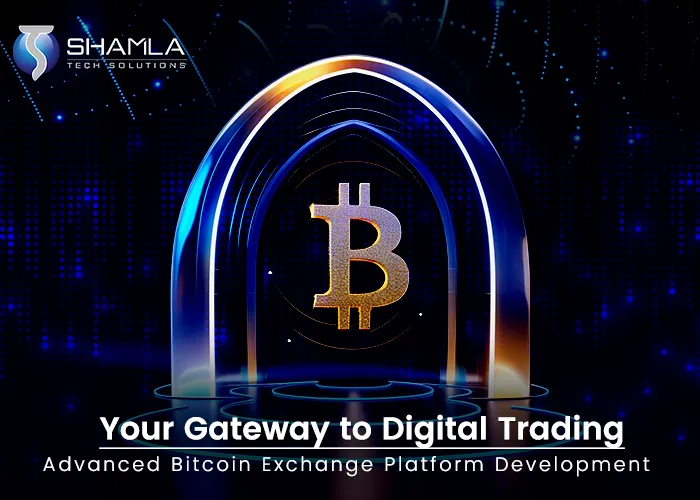
Cost Analysis of Bitcoin Exchange Platform Development
Developing a Bitcoin exchange platform is a complex and multi-faceted process requiring significant investment. The cost of Bitcoin exchange platform development depends on various factors, such as features, technology stack, and compliance requirements.
Core Components and Costs
The core elements of Bitcoin exchange platform development include designing a secure architecture, developing the trading engine, and implementing user authentication systems. Advanced features like multi-currency support, KYC/AML integration, and two-factor authentication can significantly increase costs. Additionally, integrating payment gateways and liquidity management features adds to the budget.
Technology Stack and Tools
The choice of technology stack plays a crucial role in cost estimation. Blockchain technology, smart contracts, and APIs for real-time data synchronization are essential components. Opting for scalable and robust solutions may require a higher upfront investment but ensures long-term reliability.
Customization and Compliance
Customizing the platform with unique features to meet specific market needs can also impact the cost. Moreover, adhering to global and regional regulatory frameworks, such as KYC/AML, requires significant resources and legal expertise, further influencing the overall expenses in Bitcoin exchange platform development.
Maintenance and Scalability
Post-launch, maintaining and upgrading the platform to accommodate increased user demand is another expense to consider. Regular updates and support ensure seamless performance and customer satisfaction.
Awell-planned budget for Bitcoin exchange platform development can range from $50,000 to over $500,000, depending on the complexity and scale of the project. Partnering with experienced developers ensures cost-efficiency and quality results.
Conclusion
Bitcoin exchange platform development stands as a cornerstone for the growing adoption of digital currencies. With the increasing demand for reliable and secure trading solutions, developing a Bitcoin exchange platform presents a lucrative opportunity for businesses and entrepreneurs aiming to make a mark in the crypto ecosystem. These platforms not only facilitate the buying, selling, and trading of cryptocurrencies but also serve as a medium for creating and managing digital assets, enabling businesses to create a cryptocurrency coin or build a cryptocurrency coin for diverse applications.
As technology continues to advance, the expectations for modern cryptocurrency exchange platforms are higher than ever. Users demand features such as seamless fiat-to-crypto and crypto-to-crypto exchanges, enhanced user interfaces, and robust security measures to protect their investments. Entrepreneurs must prioritize scalability, compliance with international regulations, and real-time data integrations to ensure long-term platform success. Additionally, embracing trends such as decentralized finance (DeFi) and integrating features to support create your own token functionality can further expand the platform’s appeal and profitability.
The journey of Bitcoin exchange platform development is not without challenges, but partnering with an experienced crypto coin development company can make the process seamless and efficient. From initial design and security protocols to advanced integrations and ongoing support, every step is crucial to achieving a high-performing platform. By aligning technical innovation with market demands, businesses can successfully navigate the competitive landscape and drive the future of cryptocurrency trading.
FAQs on Bitcoin Exchange Platform Development
- What is Bitcoin Exchange Platform Development?
Bitcoin Exchange Platform Development refers to the process of creating a digital platform where users can trade cryptocurrencies, including Bitcoin, with fiat currencies or other digital assets. These platforms are built with features like real-time trading, liquidity management, and robust security measures to ensure seamless and secure transactions.
- How long does it take to develop a Bitcoin exchange platform?
The development time depends on the platform’s complexity and features. A basic exchange platform may take 3–6 months to build, while a more advanced, customized solution with enhanced security and additional features can take 9–12 months or longer.
- What are the essential features of a Bitcoin exchange platform?
Key features include a user-friendly interface, multi-currency wallet integration, advanced security protocols, real-time trading charts, liquidity management, KYC/AML compliance, and fiat-to-crypto and crypto-to-crypto exchange options.
- Is Bitcoin Exchange Platform Development expensive?
The cost of development varies based on platform requirements, such as features, security, and scalability. Basic platforms can cost $50,000–$100,000, while high-end platforms with custom functionalities may cost upwards of $500,000.
- How do I ensure the security of my Bitcoin exchange platform?
Security can be ensured by integrating advanced measures such as two-factor authentication (2FA), SSL encryption, anti-phishing software, cold storage for crypto assets, and regular security audits.
- Can I create a cryptocurrency coin alongside the exchange platform?
Yes, you can. Many Bitcoin exchange platform development projects include features for creating or managing custom cryptocurrency coins or tokens to expand functionality and attract a broader user base.
- What are the legal requirements for Bitcoin exchange platforms?
Legal requirements vary by jurisdiction and may include KYC/AML compliance, data protection regulations, and obtaining specific licenses for crypto trading. Partnering with a legal expert ensures adherence to all applicable laws.


